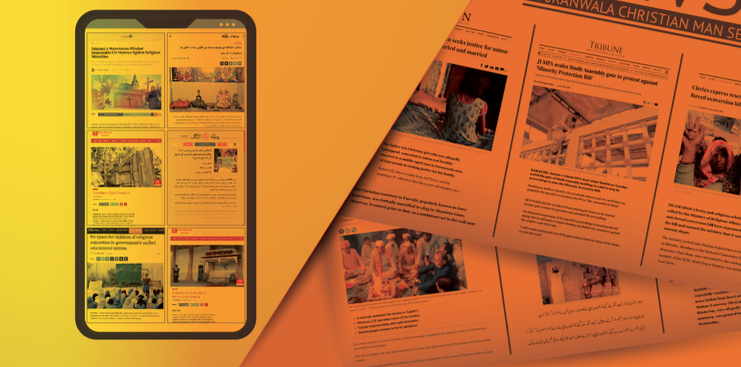Digital Media Alliance of Pakistan (DigiMAP) in cooperation with Freedom Network and IRADA published a report titled “Digital Media and Diversity: How Pakistan’s Media Reports Minorities.”
This research report aims to provide an in-depth examination of public interest news and information on the rights and lives of religious minorities (RMs) published by independent non-legacy digital publications and legacy media websites in Pakistan.
The report is based on a comparative analysis of news stories related to religious minorities produced by non-legacy digital media outlets represented by the 13 member organizations of the Digital Media Alliance of Pakistan (DigiMAP) and legacy media websites represented by five major media groups over a period of three and a half months in 2021. The research also encompassed documentation of journalistic experiences of non-legacy media practitioners in reporting about religious minorities.
The research sample consisted of 52 stories from non-legacy digital publications and 48 stories from legacy media websites monitored and analyzed in the same period. The stories were evaluated against 11 indicators for quality journalism and diversity. A survey was also conducted of non-legacy digital journalists to identify the challenges they faced in reporting about religious minorities.
The main findings of the study are:
- Public interest dimensions – Non-legacy digital media performs slightly better than legacy media.
- Contextualizing the coverage – Non-legacy digital media shows up where legacy media struggles.
- Inclusivity and diversity – Legacy media coverage fails the test.
- Avoiding negative stereotypes – Coverage of RMs largely neutral.
- The Jillani Judgment – Legacy media forgets Supreme Court ruling.
- Journalists are unsure of story ideas due to “sensitivity”.
- Social and religious pressures affect reporting on religious minorities.
- Restrictions on access are a form of government pressure.
- Finances and sourcing are seen as major logistical challenges.
- Awareness of minority rights improved.
Based on the findings, the research offers the following recommendations:
- Ensure sustainability of mentorship for public interest digital journalism.
- Enhance the capacity of digital journalists to report on marginalized communities.
- Provide safety training to digital journalists.
- Increase awareness about the Justice Jillani judgment.
- Draft a code of ethics to guide responsible reporting about marginalized groups.
- Encourage engagement between media and minorities around content.

